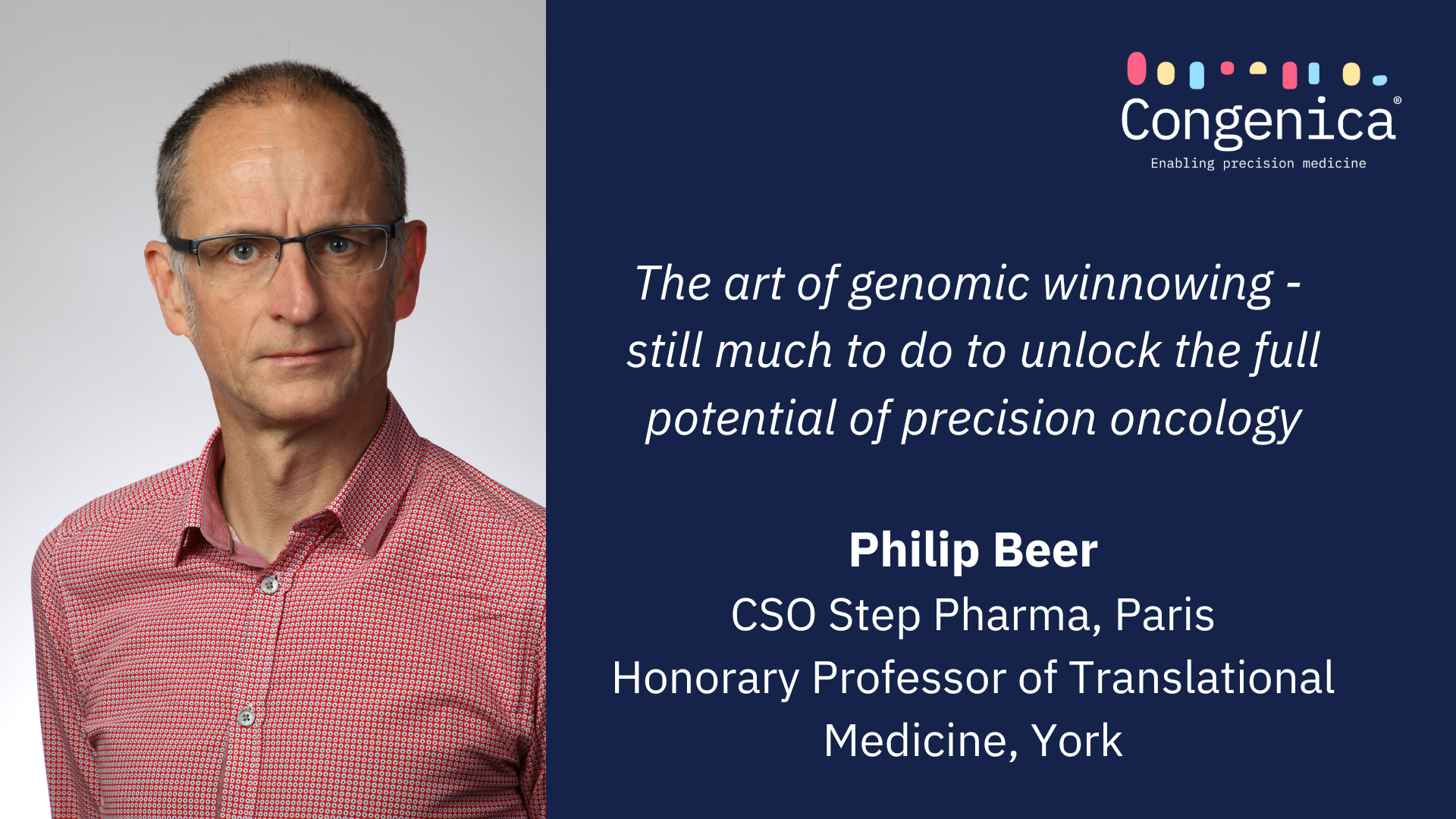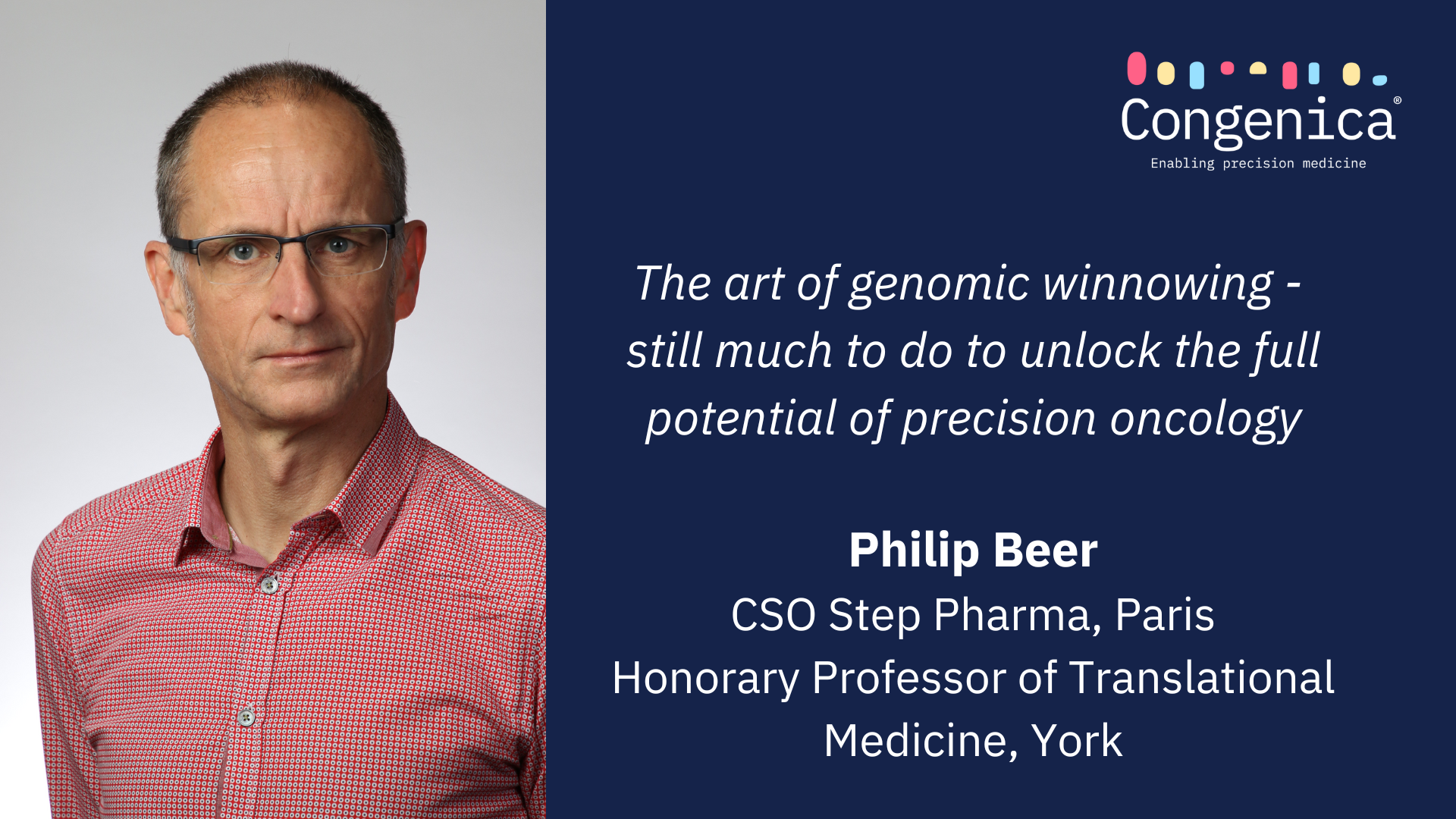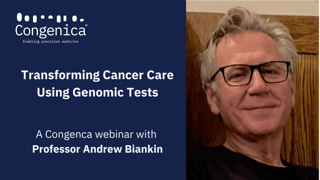Philip Beer, Chief Scientific Officer of Step Pharma, Paris, and Honorary Professor of Translational Medicine in York, presented a webinar exploring one of the key challenges that we are currently facing when applying genomic testing in cancer.
This blog post highlights the key takeaway messages from his webinar.

Genomics has the potential to transform oncology clinical practice
Currently, over a quarter of all individuals diagnosed with advanced cancer are eligible for a treatment based on genomic analysis of their cancer. Tumour profiling also opens the door to new treatments being studied as part of clinical trials where it has been shown that around 40% of the patients receiving a new cancer treatment in a trial can expect to benefit when the treatment is selected based on genomic analysis of their cancer.
While this sounds all promising, a recent report by the Association of the British Pharmaceutical Industry (ABPI) concluded that, despite progress, the UK still has much room for improvement in the delivery of genomic testing in cancer. Moreover, the British In Vitro Diagnostic Association (BIVDA) is currently working together with Charles River Associates to review barriers to progress and identify workable solutions. This report is expected in the Spring.
So, if genomic tumour profiling does have the potential to transform oncology clinical practice, what is hindering the wider implementation of Precision Oncology into routine cancer care?
Analysis of genomic data is an important bottleneck
Tumour profiling identifies many changes in the cells’ DNA. Some of these changes drive the process of cancer, whereas other DNA changes are of no consequence. In order for the genomic analysis to help individuals living with cancer, these DNA changes need to be sorted, a bit like winnowing is used to sort the wheat from the chaff. Current approaches to genomic winnowing are based on genomic experts manually interpreting the data and deciding whether a specific DNA change is significant to the cancer development and progression, or whether this change is benign. This type of approach is not only time-consuming and subjective, but might also lead to different laboratories coming to different conclusions about whether a DNA change is important or not. As a consequence, sample throughput remains very restricted, and labs can only perform limited numbers of analyses at any given time.
What is the alternative?
An alternative approach to genomic winnowing, described in this webinar, uses the principles of Darwinian evolution to determine the importance of different DNA changes. Cancers grow and evolve according to the same principles that Charles Darwin described for the evolution of different plant and animal species. These principles can be applied to cancer in a way that is fast, accurate and reproducible. Most importantly, as these DNA changes and their respective outcomes are well documented in many cancer patients, statistical approaches can be applied.
This not only reduces the reliance on genomic experts, but significantly increases lab throughput and removes the barriers that currently hamper the successful adoption of Precision Oncology in routine clinical care.
Congenica’s novel Precision Oncology platform
Here at Congenica we are developing a fully automated end-to-end solution based on the principles described above. Our fully hands-off platform is not only scalable, but enables rapid, unbiased and evidence-based analysis of tumour profiling data. Coupled with automated reporting including personalised treatment recommendations, our solution is set to help accelerate the implementation of Precision Oncology into routine clinical care and support faster access to clinical trials and more efficient development of new treatment options.
Sound exciting? Listen to our webinar 'Genomic Sequencing to Improve Cancer Care' to learn more!
If you are using TSO500 in your routine oncology diagnostics workflow and are interested in participating in our European Early Access Program, you can find out more here.




